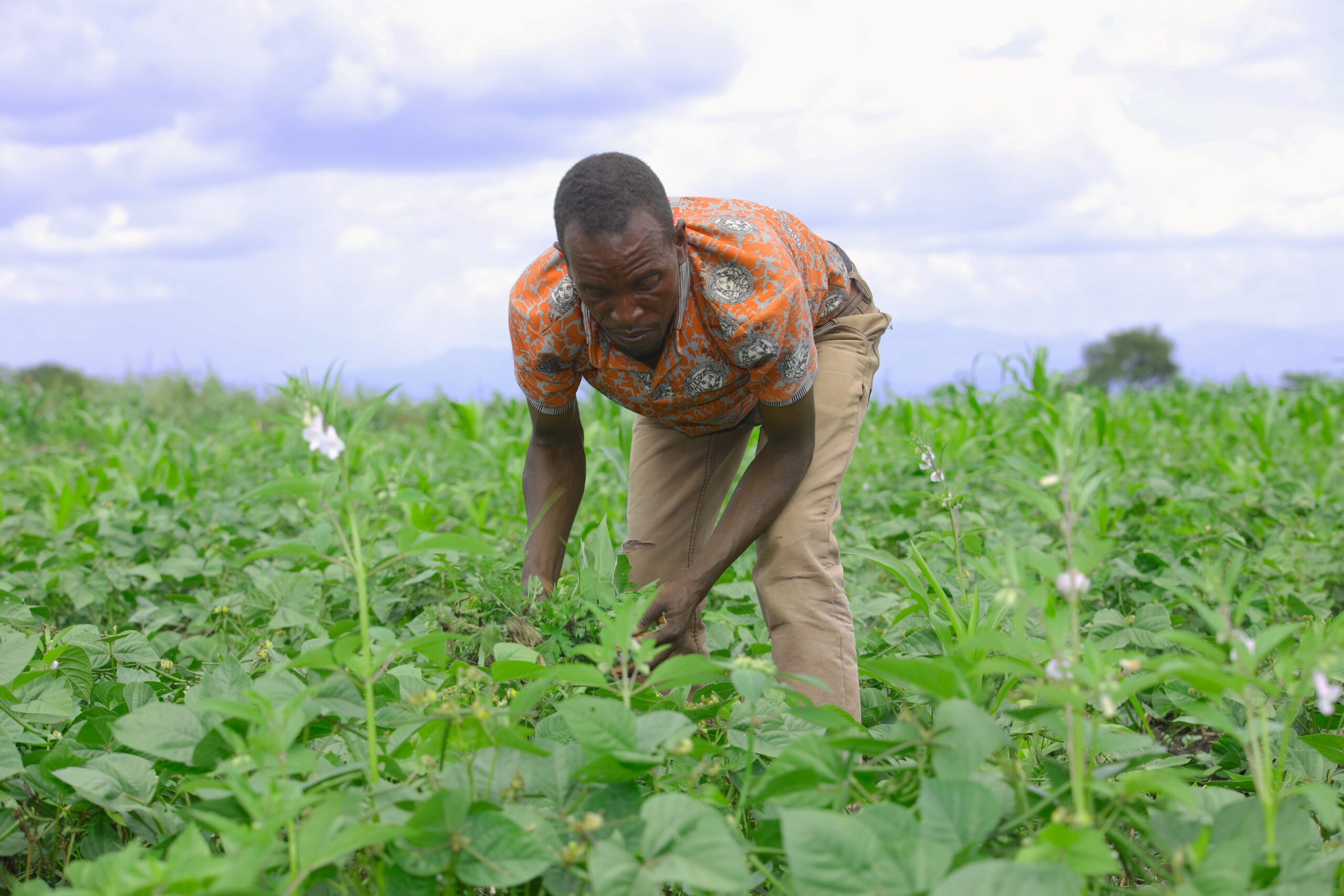How healthy soil impacts food, income, and the environment
What is World Soil Day?
Today, Nuru observes World Soil Day. World Soil Day is celebrated on December 5th to advocate for sustainable soil management and raise awareness about the importance of healthy soils. The International Union of Soil Sciences (IUSS) initiated this day in 2002, and it gained formal recognition from the Food and Agriculture Organization (FAO) and the UN General Assembly in 2014. This day serves to spotlight the vital role soil plays in supporting biodiversity, climate resilience, and sustainable food systems. The 2024 theme is Caring for Soils: Measure, Monitor, and Manage. By emphasizing the need to measure, monitor, and manage soil health, this year’s theme highlights the essential steps we must take to protect this vital resource for future generations.
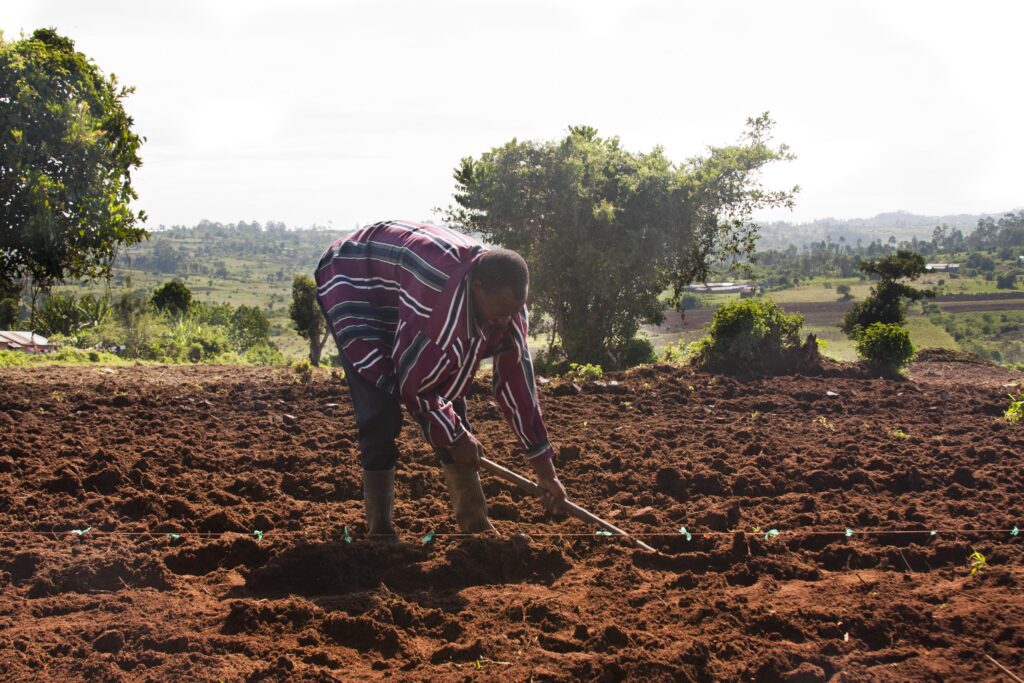
Kenya, 2011
Soil Health: Part of the Nuru Model
Nuru acknowledges World Soil Day, recognizing that soil health is fundamental to the productivity of agribusiness members and the sustainability of their livelihoods. Across the Nuru Collective, through locally-led and locally-operated organizations, agribusiness members are taught climate-smart agricultural (CSA) practices through nitrogen-fixing legumes (groundnuts and soybeans). CSA practices are designed to sustainably increase agricultural productivity and incomes, and equip agribusiness members to adapt to climate change. Healthy soil is at the core of these practices, supporting crop productivity, resilience to climate shocks, and water management. For agribusiness members to increase their yields and incomes, soil health remains essential for the sustainability of their lands and livelihoods.
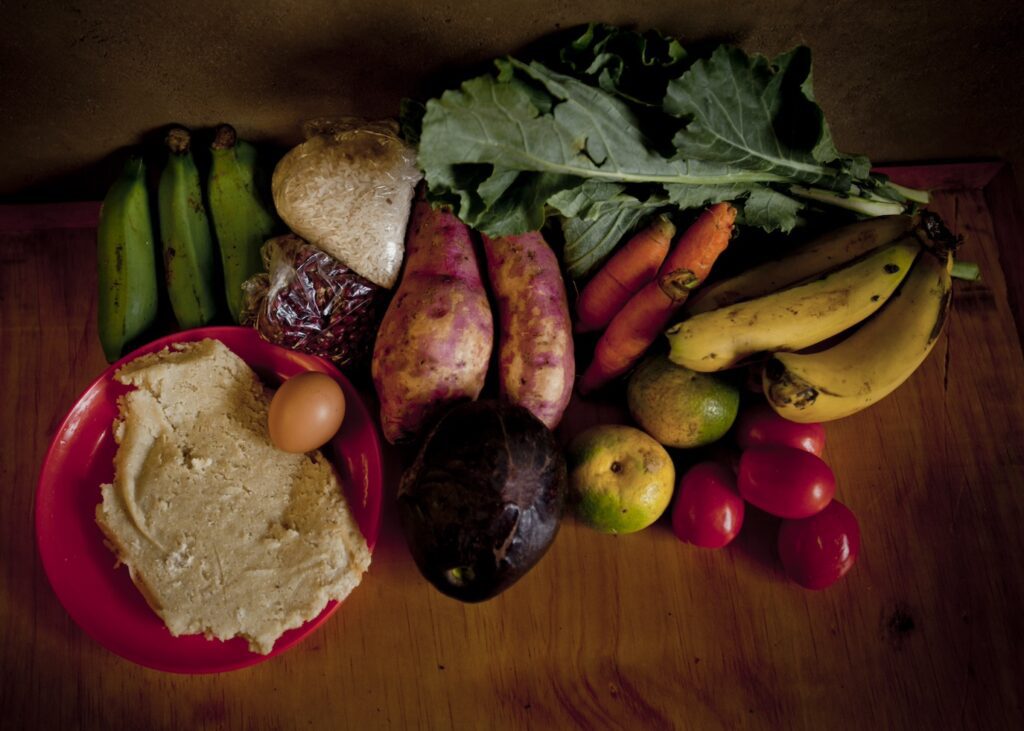
World Soil Day: Measure, Monitor & Manage
As part of Nuru’s Community Climate Resilience approach, Nuru prioritizes soil health across the collective by equipping agribusiness members to implement regenerative agriculture principles through CSA. To measure soil health, some local Nuru organizations hire local private consultants to collect soil samples from cooperative members’ land and assess macro and micronutrient levels. During 2022-2023, Nuru Nigeria conducted soil assessments across its operating areas, using the results to provide tailored recommendations for crop input packages, including specific fertilizers offered on loan through agribusiness cooperatives.
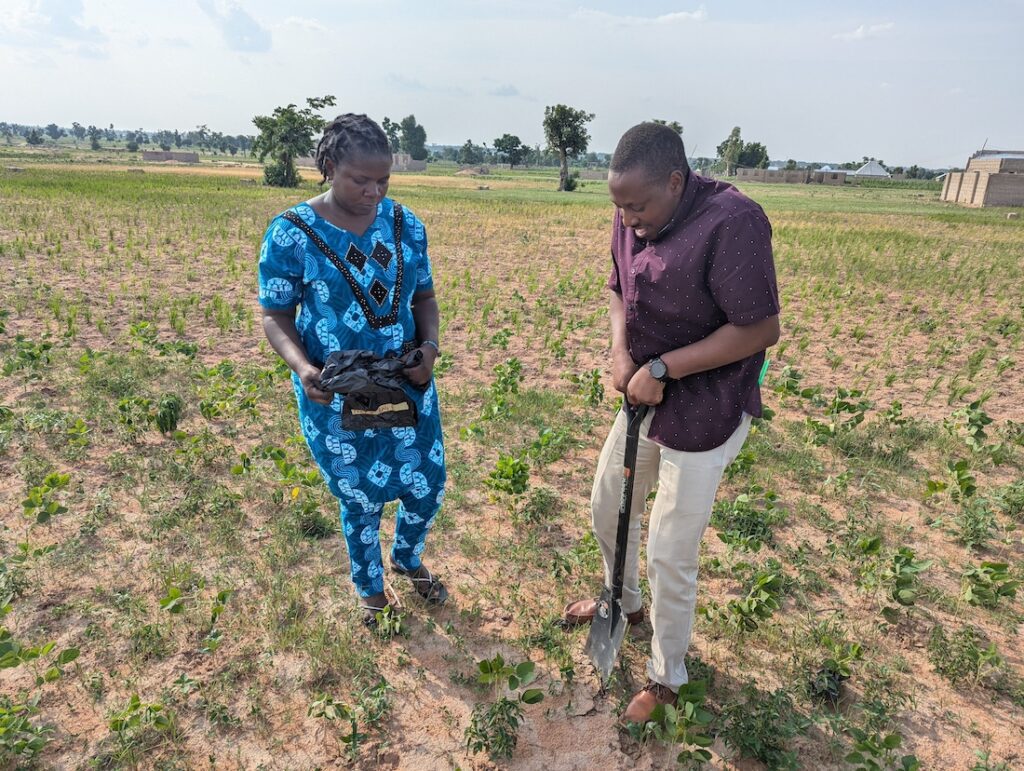
Nuru Nigeria staff collecting soil samples for evaluation, 2024
Similarly, in 2023, Nuru Burkina Faso hired a company to test soil samples from farmers’ fields. The analysis looked at the soil PH, organic matter content, and levels of mineral elements (nitrogen, phosphorus, potassium) and provided recommendations for improving soil fertility. The recommendations included the following:
These findings were shared with agribusiness members, helping them refine practices to enhance soil organic matter and nutrient levels, aiming to improve soil health and increase crop yields. These soil measurements provide agribusiness members with valuable data on their land, enabling them to make more informed decisions. Members can monitor and manage crop growth while receiving training and coaching on CSA practices to improve soil health and increase yields.
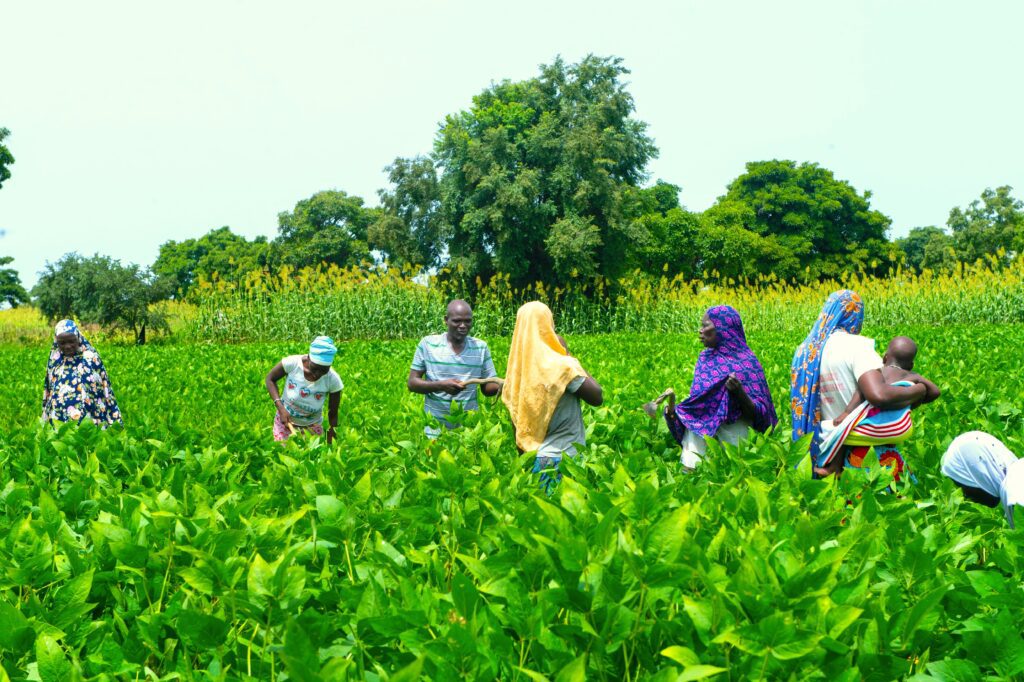
Nuru Burkina Faso farmers, 2024
CSA practices work to manage and improve the overall quality of soil through multiple pathways. One example is composting to increase organic matter within the soil. Nuru Nigeria trains farmers on composting techniques, material selection, and maintenance practices to equip them with an alternative low-cost fertilizer that is rich in organic matter (OM). Compost is a nutrient-rich soil amendment made from carbon-based organic materials, such as livestock manure and plant residues. Composting enriches the soil with essential nutrients, while simultaneously improving the overall structure of the soil (FAO).
Nitrogen-fixing legumes also support soil health. Throughout the collective, nitrogen-fixing legumes, such as groundnut and soybean, are purposefully selected to enhance soil nitrogen levels. In addition to supporting the soil, these are high-value, nutritious crops that can support increased income and household nutrition. In Burkina Faso, soybeans and groundnuts are offered in crop packages to agribusiness cooperative members to take on loan. Legumes play a key role in their ability to capture nitrogen from the atmosphere and convert it into a form that is usable by plants. They can supply organic resources, suppress the growth of weeds, and enhance fertilizer uptake (Agric). By positively impacting soil properties, these plants support increased crop yields, benefiting the soil and the livelihood of agribusiness cooperative members.
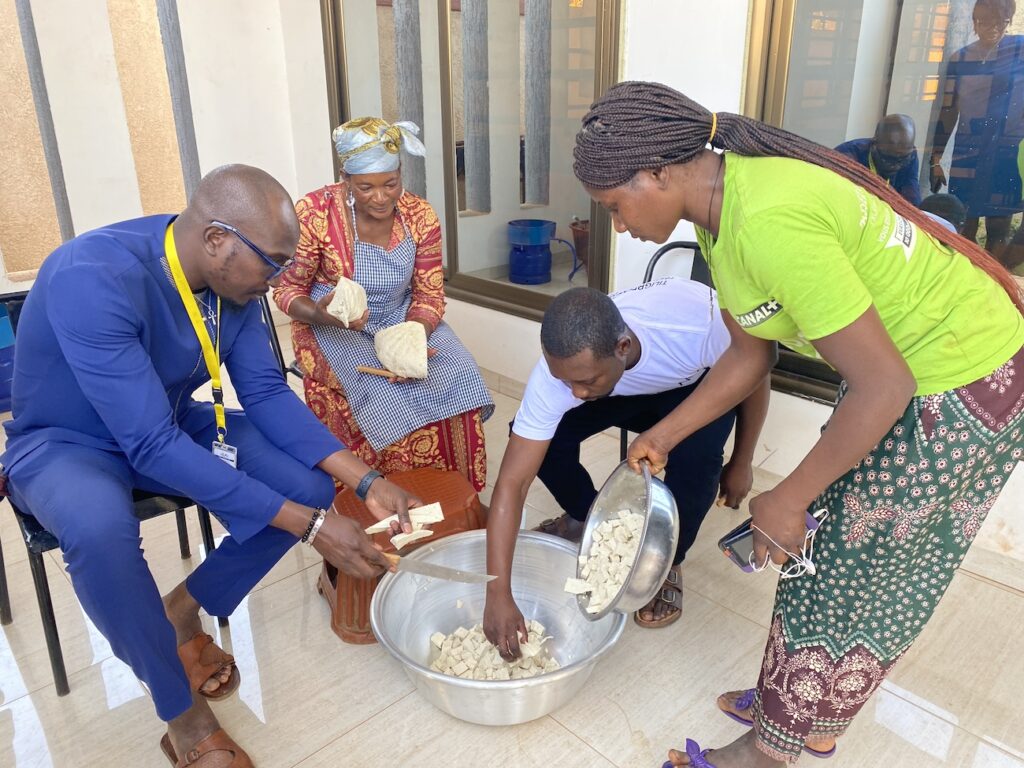
Cutting processed soybeans into tofu cubes, Nuru Burkina Faso, 2023
Soil Health at Nuru: Community Climate Resilience
The recent 2024 United Nations Climate Change Conference (COP 29) in Baku, Azerbaijan, emphasized the theme “In Solidarity for a Green World”. The priority of COP29 is to drive meaningful emissions reductions to keep global temperatures in check while ensuring inclusivity and equity, leaving no one behind. This objective is important to mitigating the impacts of climate change and fostering a sustainable future.
Nuru recognizes the importance of both mitigative and adaptive measures to address the global impact of climate change. Healthy soils play a critical role in reducing greenhouse gas emissions, and they are key to climate mitigation. Soil rich in organic matter captures and stores carbon from the atmosphere through carbon sequestration, reducing carbon dioxide levels and helping to mitigate the effects of climate change.
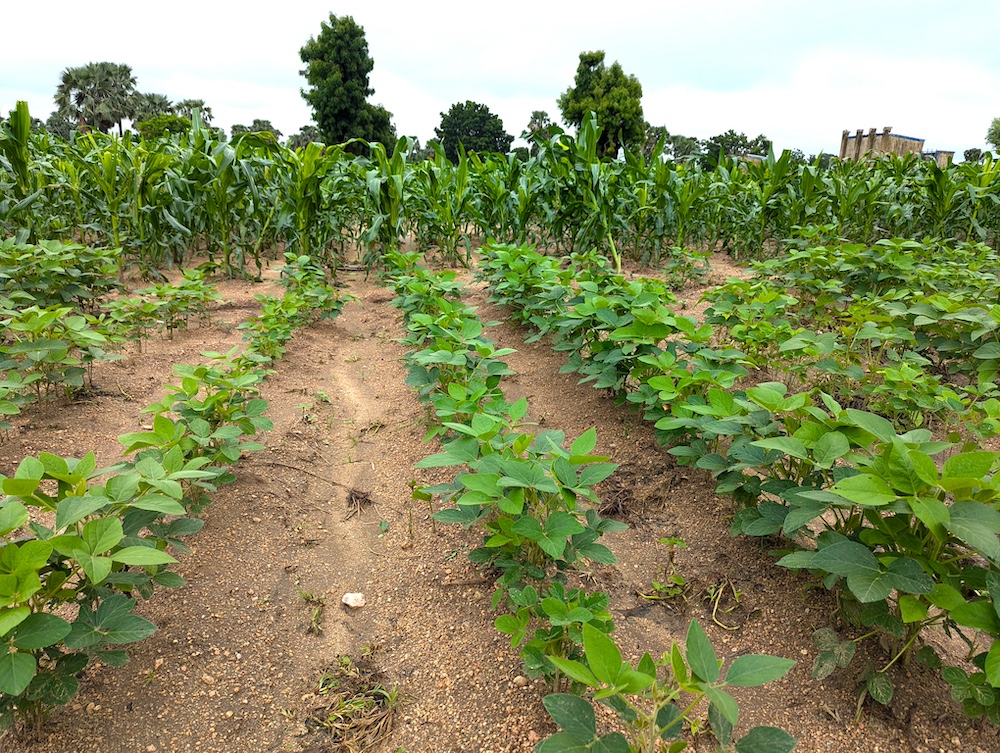
Thriving crops in Nigeria, 2024
Climate adaptive measures focus on adjusting our behaviors, systems, and ways of life to the present and future impacts of climate change. Nuru trains agribusiness cooperatives in adaptive measures through CSA practices, including:
- the use of improved seed varieties
- optimal spacing
- effective weeding
- compost application
- enhanced post-harvest techniques
These trainings aim to equip agribusiness cooperative members with sustainable practices that build and maintain healthy soils, fostering long-term climate resilience.
Why is soil health tied to poverty alleviation?
Food and Soil Health
Soil health is essential for improving food security and ensuring the sustainability of smallholder farms. Reduced legume crop yields (Popoola), coupled with a growing population in the geographic region of Sub-Saharan Africa (estimated to double by 2050), are driving increased demand for food. It is critical to strengthen food systems by equipping youth and women through rural livelihoods that promote sustainable food production, using quality seeds and regenerative farming practices (CGIAR).
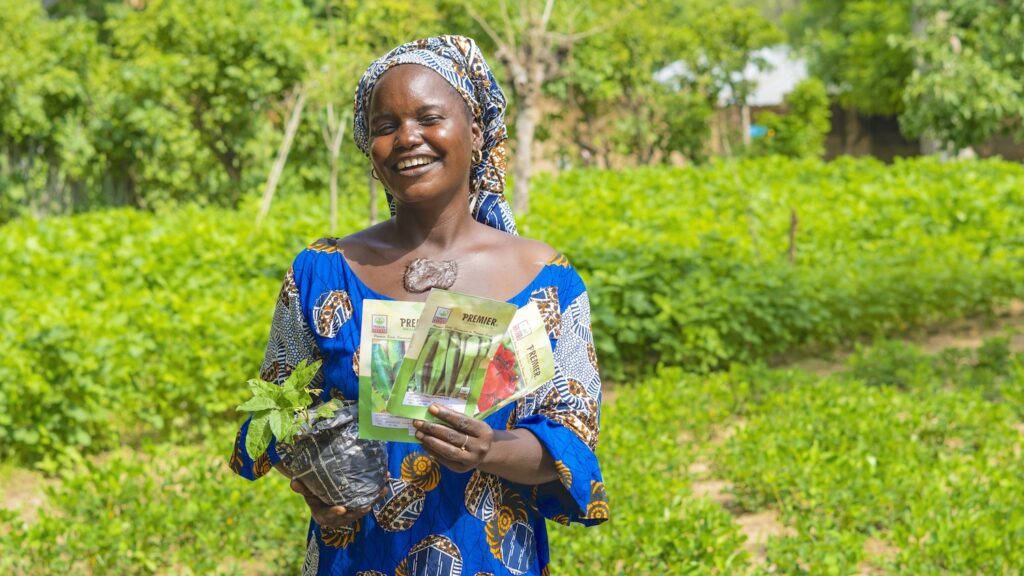
Nuru Nigeria woman farmer with seeds, 2024
Nuru champions women-led activities, like permagardens, to support women’s inclusion and leadership in agricultural jobs, while increasing household access to diverse vegetables that improve nutrition. CSA practices are the foundation for permagarden and legume crop training, as healthy soils support more productive, resilient agricultural systems that can yield more crops, adapt to climate change, and support food security in rural communities.
Income and Soil Health
Productive soils are essential for agribusiness members to sustainably generate income, as their livelihoods largely depend on agriculture. The agriculture sector employs 42% of Africa’s workforce but is 60% less productive than the broader economy, limiting workers’ ability to earn enough to rise out of poverty (AFDB). Through member-owned agribusinesses, local Nuru organizations equip smallholder farmers to access training, improved inputs, and services to boost productivity, yields, and incomes. As membership grows at the agribusiness level, so too does the bargaining power of the agribusiness to negotiate with local buyers.
Nuru trains agribusinesses in regenerative agriculture and CSA practices to improve soil health and increase yields. By producing higher-quality and greater quantities of legumes, cooperative members can aggregate their produce to sell at competitive prices, creating a more reliable income source while reducing their vulnerability to the many risks posed by climate change. Soil health is at the heart of this production cycle. Consistent monitoring, measuring, and management of soil health can enhance agribusiness members’ productivity, increasing their incomes over time.
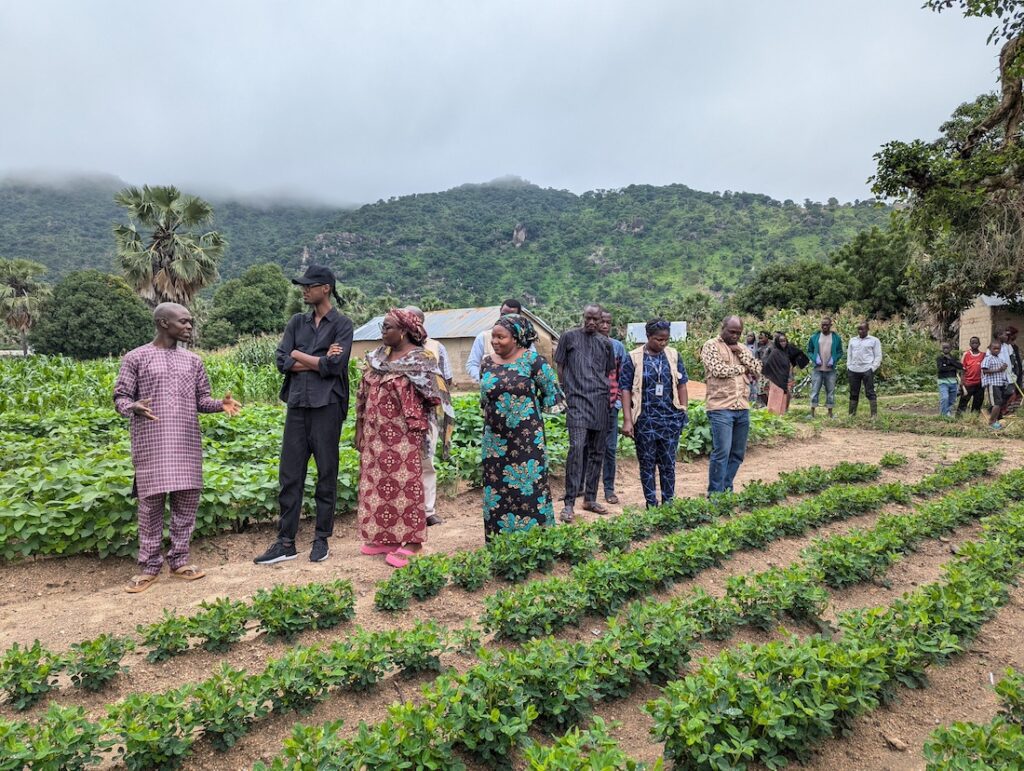
Nuru Nigeria staff observing crop yields in northeast Nigeria, 2024
The Environment and Soil Health
Approximately 65% of agricultural land in SSA is degraded due to poor management practices, which have diminished soil quality—biologically, chemically, and physically—thereby reducing its capacity to sustainably support crop production (Science Direct). Continued training and education on soil health are essential, as the long-term vitality of soil is directly connected to a sustainable environment and the well-being of rural livelihoods. Nuru’s plan to achieve a net-zero operational footprint by 2030 aligns with its efforts to improve soil health, as healthier soils act as a carbon sink, storing large amounts of carbon dioxide from the atmosphere. Promoting soil health supports a thriving ecosystem, which in turn bolsters agricultural resilience and income stability for rural communities.
How One Farmer Improved His Soil Health & His Life: Phanuel
Phanuel is just one of the more than 32,000 people whose lives have been impacted by Nuru Nigeria’s work in northeast Nigeria. Phanuel, a member of a Nuru Nigeria-supported agribusiness, had been growing groundnuts for years, just like many others in his community. While groundnut farming had helped sustain his family, he had never attempted to grow other crops until Nuru Nigeria introduced his community to soybeans.
Through Nuru Nigeria’s comprehensive support, from pre-planting to post-harvest, Phanuel was supported throughout the farming season. He gained access to quality seeds and learned new regenerative principles to support the health of his soil. Nuru Nigeria also supports access to market linkages, ensuring farmers like Phanuel can sell their produce at competitive rates. For Phanuel, this was life-changing.
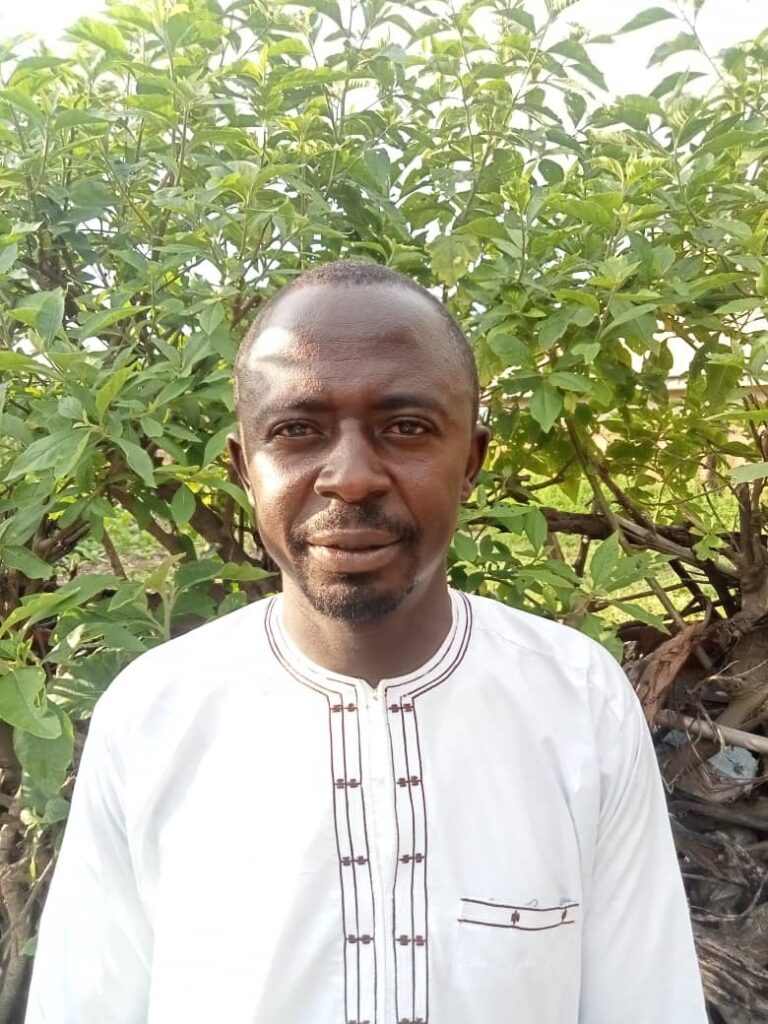
Phanuel, 2024
At the end of the season, Phanuel not only became the highest soybean aggregator in his community, but he also earned a substantial profit from his produce. With the proceeds from his soybean sales, he purchased a bull to plow his farmland. He further supported others in the community by plowing their land for a fee. As his household income increased, his family’s financial circumstances began to stabilize.
The impact on Phanuel created positive change that extended into his the community. With his newfound income, Phanuel employed workers to help on his expanding farm, creating job opportunities in his community. He also hired someone to care for his bull, paying them a monthly salary. Today, Phanuel comfortably pays his children’s school fees and meets the financial needs of his family.
The Future of Soil Health: What is Next?
Healthy soil creates a ripple effect of opportunity. However, soil testing can be expensive, prompting Nuru Nigeria to explore partnerships that leverage innovative digital tools for soil health assessment. One such tool is Slakes, a free app developed by the Soil Health Institute (SHI), which measures a soil sample’s aggregate stability. Higher aggregate stability indicates healthier soil, and demonstrates:
- increased water storage capacity
- enhanced resistance to erosion
- increased infiltration
In August, Nuru Nigeria participated in a demonstration and virtual training session on Slakes to become familiar with its features and evaluate the feasibility of piloting this tool in 2025. Access to free digital soil testing tools like Slakes could equip agribusiness members to measure and monitor their soil, make informed decisions about input use, and manage the long-term productivity of their soil and crops.
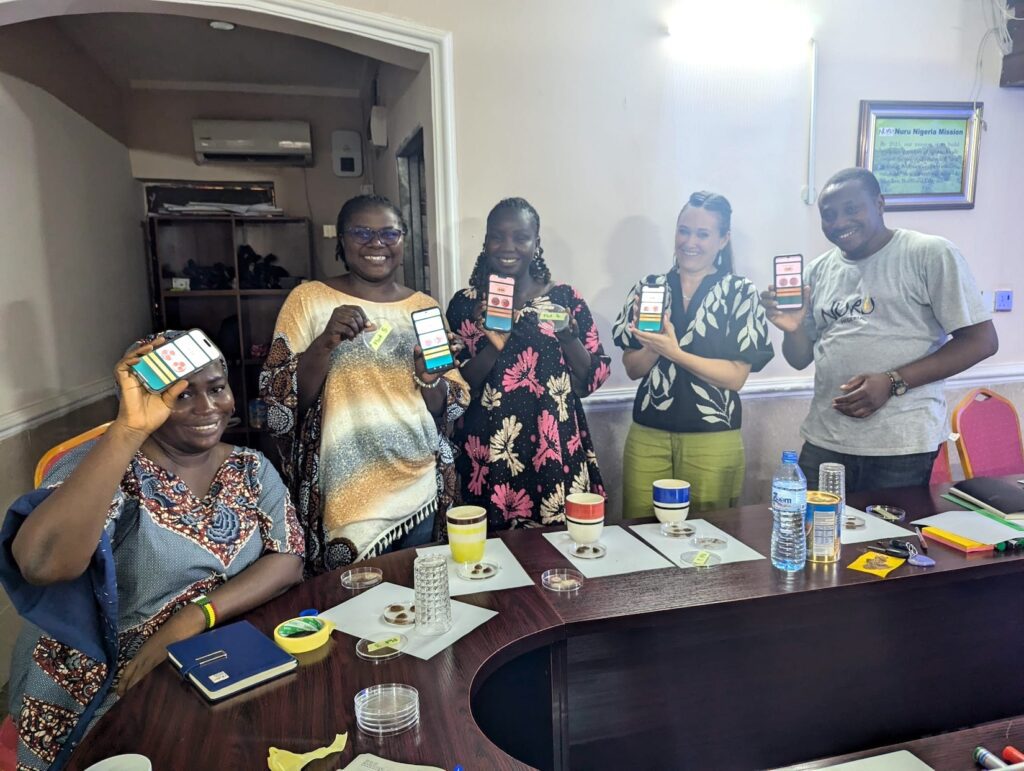
Nuru Nigeria staff and Nuru Sr. Markets and Impacts Associate Bethany Ibrahim using the Slakes app, 2024
In 2025, Nuru Ethiopia will support soil health by delivering nature-based solutions (NBS) to an environmentally vulnerable zone in partnership with the Hidota Farmer Cooperative Union. Nuru Ethiopia will plant at least 300,000 trees within the Gidole-Kemba National Forest Priority Areas (NFPAs). This will be accomplished through:
- organizing tree nurseries
- seedling distribution
- tree planting demonstration sites
- natural resource management
- biodiversity training
- preparing activities for scaling to new NFPAs
Tree planting activities can help to support soil health by reducing soil erosion, increasing soil fertility, decreasing the risk of salinization, and enhancing the land’s capacity to store water. Further NBS activities in Ethiopia will include terracing, micro-basins, and improved forestry techniques on community-managed lands to reinforce the CSA practices adopted by farmers on their land.
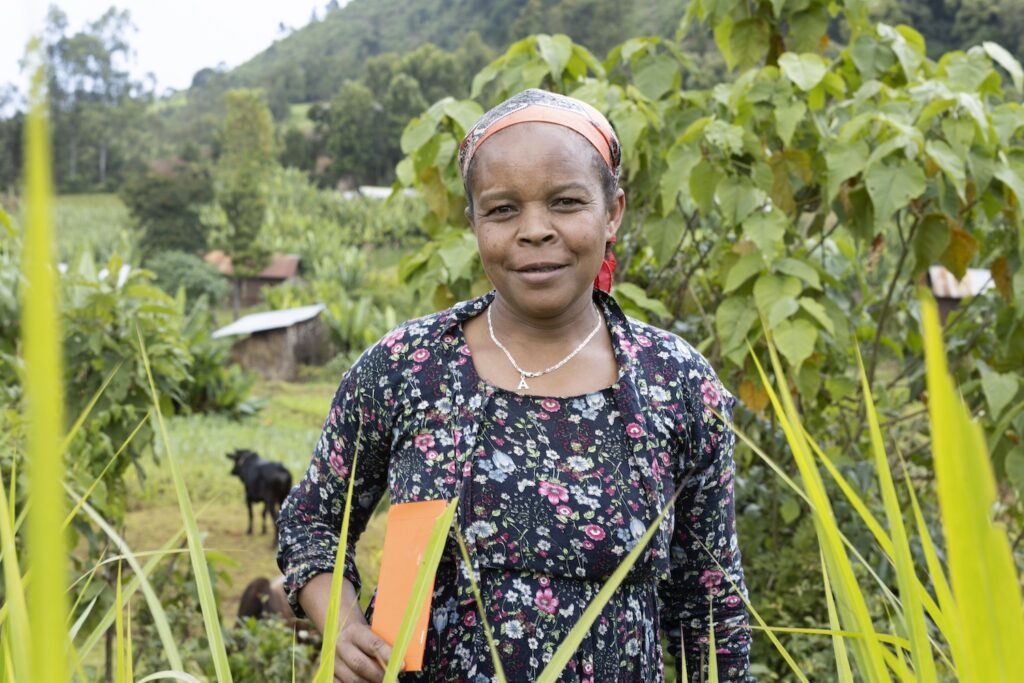
Woman Farmer, Nuru Ethiopia, 2024
Nuru will continue to support regenerative agriculture through CSA activities to measure, monitor, and manage soil health. Measuring soil health provides farmers with critical data to make informed decisions about inputs that can enhance soil health and increase crop growth. Monitoring soil health allows for the evaluation of how inputs and CSA practices impact crop cycles over multiple seasons. Managing soil health is at the core of Nuru’s training programs, with CSA practices forming the foundation of these efforts across the Nuru Collective. Soil is the heart of agriculture, requiring ongoing care and attention to sustain its productivity and resilience. At Nuru, we cultivate more than crops. We plant hope.


